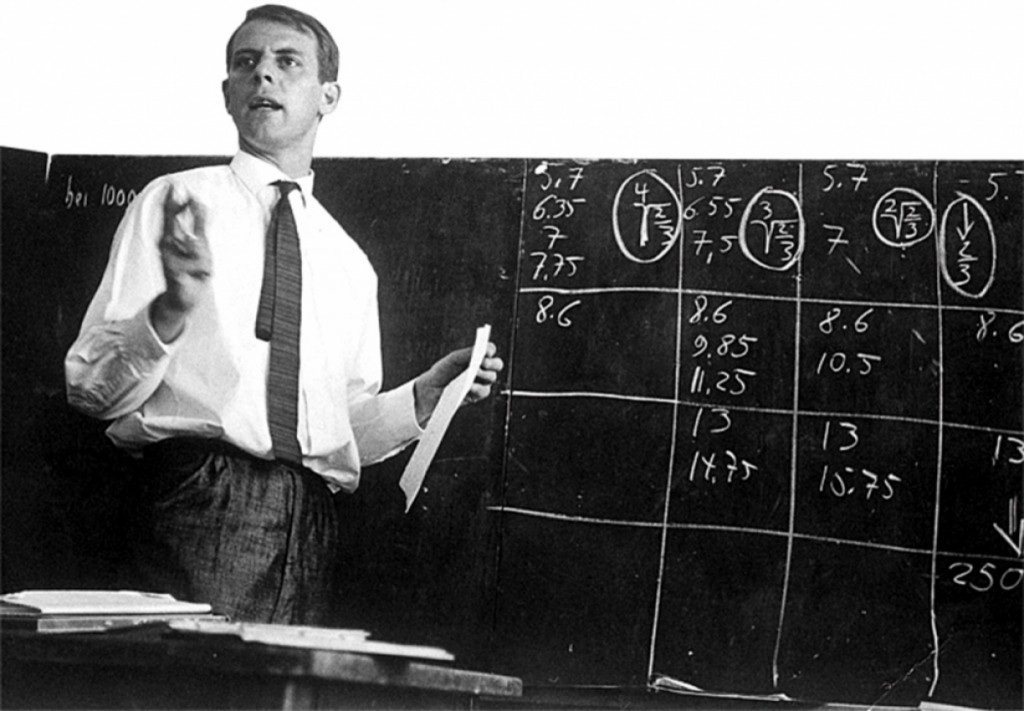Cosmic music (I)
07.25.2016Karlheinz Stockhausen was a great musical powerhouse last century due to his art, philosophy on life, sense of purpose and influence. The founders of diptyque held him in high esteem and went to all his Paris concerts. The deep and utopian thought processes of the composer on the topic of « world music » demonstrates his vision of an ecumenical humanism, that is to say « that embraces the whole of the inhabited planet. »
The way a musician thinks is complex: uniting several fields of knowledge and linking analysis with foresight. This musician expresses himself as both a musician and a scholar; an intellectual evaluator of changes within his era; an activist imbued with the idea that diversity in the world demonstrates an original unity that humanity has to understand in order to express itself in a new way; a musical prophet whose compositions transcend every quirk and edifies the soul of every human being; finally as an authority in his time whose status compels him to steer humanity in the right direction by involving other musicians. Not an oracle so much but the voice of a human being driven by his vocation as a musician.
Stockhausen initially investigated the impact of the globalisation that had brought traditional cultures in contact with Western culture. The latter corrupts them and causes their extinction. One thing for sure, the arts that have crystallised into a specific form – from a culture, rites, and the use of certain types of instruments – are doomed to destruction.
The dissolution process of these cultural idiosyncrasies caused by the globalisation of communication predisposes a kind of global culture: but the latter is like a pond into which all the dying cultures are flowing, leading to uniform music that is hollow and lacking in individuality. However it is rich in energy and has a consciousness that can give rise to new and key forms of art. But there is a condition: the structures of musical composition must be flexible enough to accommodate genuine creativity. Western music is an example of uniformity when it comes to compositional techniques but it triggers a wide variety of musical forms.
Yet this is not quite satisfactory for the composer who goes on to add a spiritual twist to his technical deliberations. All music, even the most isolated and traditional, has the power to move the human spirit. Because every human being has an inner humanity. The vibrations produced by music extend beyond form (sounds, instruments, rhythm, sequences that give a type of music its shape): if a musical form is localised and contextualised, its vibrations become universal. The latter gives everyone the chance to tap into an innate identity that pre-dates historical, geographical and cultural actuality.
[to be continued…]


